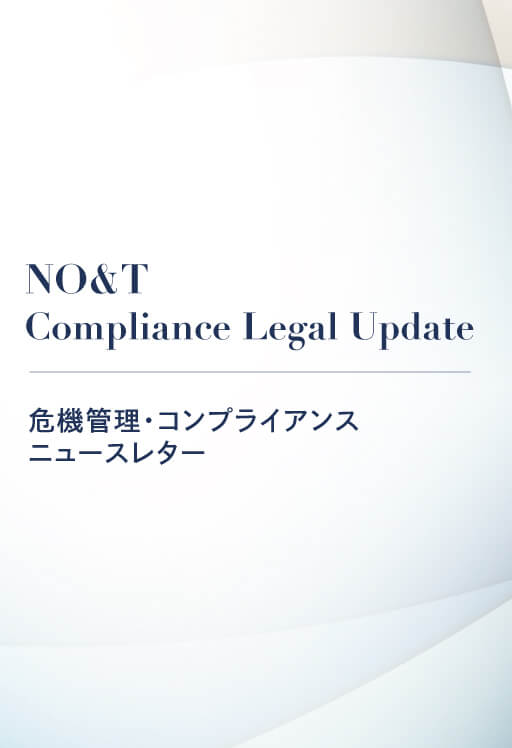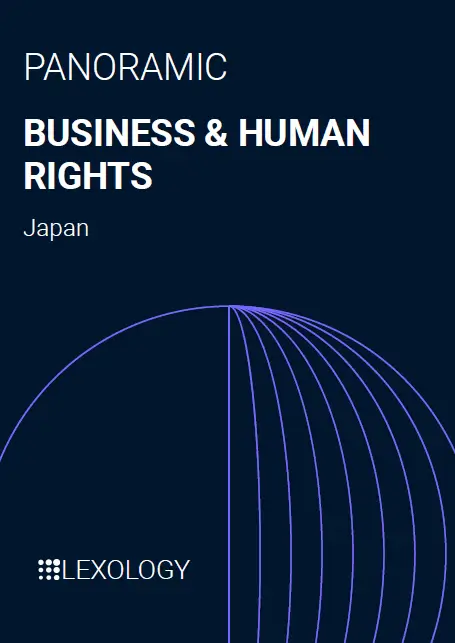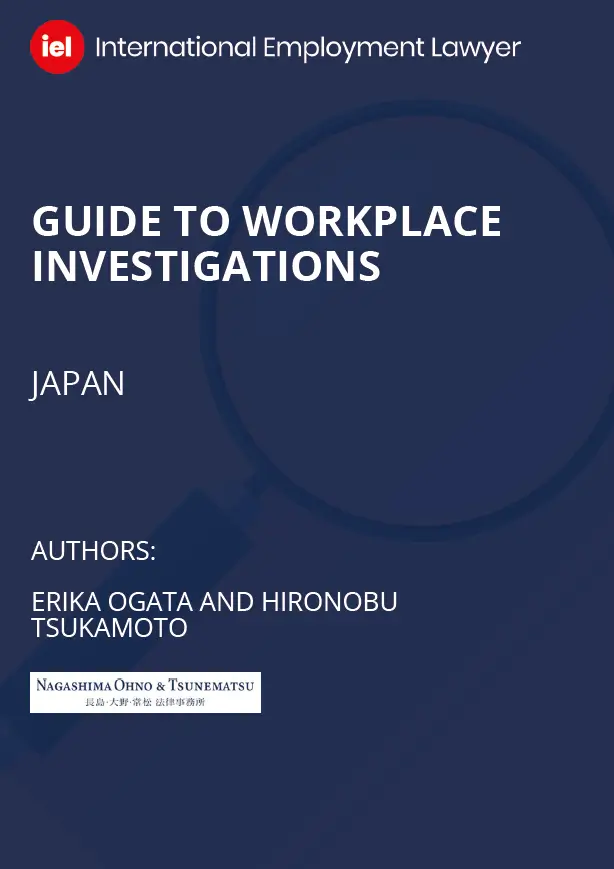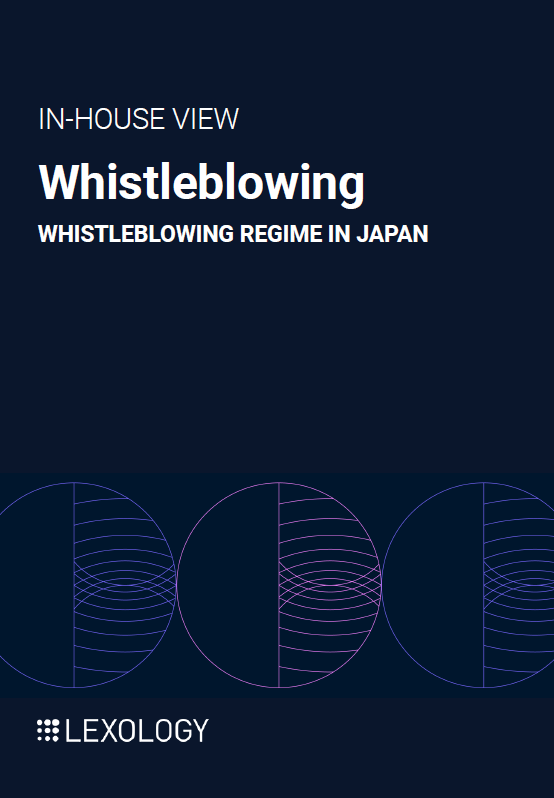
Ayumi Fukuhara Ayumi Fukuhara
Partner
Tokyo

NO&T Compliance Legal Update
On September 13 of this year, the Government of Japan published the “Guidelines on Respecting Human Rights in Responsible Supply Chains” (hereinafter “Guidelines”), which are the first cross-sectoral human rights due diligence (HRDD) guidelines issued by the Japanese government※1. In formulating the Guidelines, the Ministry of Economy, Trade and Industry (METI) held meetings of” the Study Group on Guidelines on Respecting Human Rights in Responsible Supply Chains, in which I participated as a member, compiled a draft of the Guidelines (hereinafter “Draft”) and widely solicited public commentary from August 8 to August 29. The Guidelines were finalized after revision and discussion by the Inter-Ministerial Committee. This Newsletter focuses on the differences between the Draft and the finalized Guidelines. For an overview of the Draft, please refer to my article, “Publication of the draft of Japan’s first human rights due diligence (HRDD) guidelines”(Issue No.2 of this Newsletter).
The overall approach to respecting human rights set forth in the Guidelines (establishing a human rights policy, implementation of HRDD, and establishing remedies (grievance mechanism)) remains unchanged from the Draft, and the framework for HRDD is basically the same as that of the Draft as well.
Among the changes from the Draft, the following are items that require special attention from companies.
The Draft provides for three types of situations in which a company may have an adverse impact on human rights: causing, contributing to either directly or indirectly, or directly linked to its operations, products, and service. The definition of each is clarified in the Guidelines, as follows (Guidelines 2.1.2.2).
The term “cause” refers to a case where business enterprise’s activities on their own are sufficient to result in the adverse impacts.
The term “contribute” refers to cases (i) where a business enterprise’s activities, in combination with the activities of another entity, cause adverse impacts, or (ii) where the activities of the business enterprise cause, facilitate or incentivize another entity to cause adverse impacts.
The linkage of the term “directly linked” is defined by the relationship between adverse impacts and the business enterprise’s operations, products, or services through the third business enterprise. Whether “directly linked” or not is not defined by direct contractual relationships, such as direct sourcing.
In light of several comments received from the public, statements highlighting the importance of the gender perspective have been added in several places, including clarification of the gender perspective; footnote 63 states, “It should also be noted that there may be different risks between women and men. […] It is important for business enterprises to implement human rights due diligence based on the perspective of gender equality.” In addition, the statement that “the risk of sexual and gender-based violence is especially prevalent during conflict and other situations” has been added with regard to considerations in conflict areas (Guidelines 4.1.2.4).
The Guidelines state that there is a need for heightened HRDD in areas affected by conflict, in line with the Draft. Further, the meaning of “heightened HRDD” has been added; footnote 71 mentions that “Heightened human rights due diligence signifies ensuring that business enterprises’ activities not only do not have adverse human rights impacts, but also do not contribute to violence in areas affected by conflicts and other situations, for example, by strengthening the understanding of the context where business enterprises operate and by identifying potential triggers that are driving conflicts and other situations. As for heightened human rights due diligence, it is critical for business enterprises to understand whether business partners are somehow linked to past or current conflicts and other situations.”
The Guidelines maintain the premise of the Draft that disengagement from the business relationship should be considered as a last resort when a company takes action based on the adverse impact on human rights, since disengagement does not remediate the adverse impacts themselves, and in fact, it could further aggravate the adverse human rights impacts by making it more difficult to monitor the adverse impacts, or by worsening the financial status of the business partner, which may lead to unemployment of its employees. In the Guidelines, the statement, “The Japanese government will provide information, advice, etc., so that business enterprises can proactively respect human rights” (Guidelines 4.2.1.3) and footnote 79, “Business enterprises could stipulate in their contracts with their business partners termination clauses for violation of contractual obligations regarding efforts to respect human rights in addition to termination clauses for violation of local labour laws and other laws and regulations. Examples of provisions are as follows: a business enterprise could impose on its business partners the obligation to comply with its procurement guidelines. And if the business enterprise confirms that the business partner is in breach of this obligation, it could demand implementation of the improvement measures. If the business partner does not comply with the procurement guidelines despite such demands, the business enterprise could terminate the contract. It should be noted, however, that regardless of the contractual requirements for termination, disengagement (contract termination) is to be considered as a last resort.” have been added to the Draft.
According to press reports, the Japanese government will consider a mechanism to give preferential treatment in government procurement to companies that engage in HRDD, based on the publication of the Guidelines. In addition, since Japanese companies’ efforts to respect human rights will be evaluated by stakeholders in accordance with the Guidelines, the need for companies to engage in HRDD is expected to increase further.
In cases where Japanese companies export products to Europe and the U.S. or are directly subject to the laws and regulations of European countries, including the recently published draft EU regulation banning the distribution of forced labor products within the EU※2, it will be necessary to separately take measures with such laws and regulations in mind. Therefore, it is important to take actions starting from the highest priority areas after risk assessment, while receiving advice from experts as appropriate.
*1
An English translation of the Guidelines can be found here.
https://www.meti.go.jp/english/press/2022/0913_001.html
This newsletter is given as general information for reference purposes only and therefore does not constitute our firm’s legal advice. Any opinion stated in this newsletter is a personal view of the author(s) and not our firm’s official view. For any specific matter or legal issue, please do not rely on this newsletter but make sure to consult a legal adviser. We would be delighted to answer your questions, if any.


(April 2025)
Ayumi Fukuhara, Momoko Yamashita, Nina Newcombe (Co-author)


(January 2025)
Hironobu Tsukamoto, Eriko Ogata (Co-author)


Yothin Intaraprasong, Waritpan Titatornwattanasiri, Yanisa Wiboonthan (Co-author)


(September 2024)
Daisuke Fukamizu, Kosuke Gunji (Co-author)